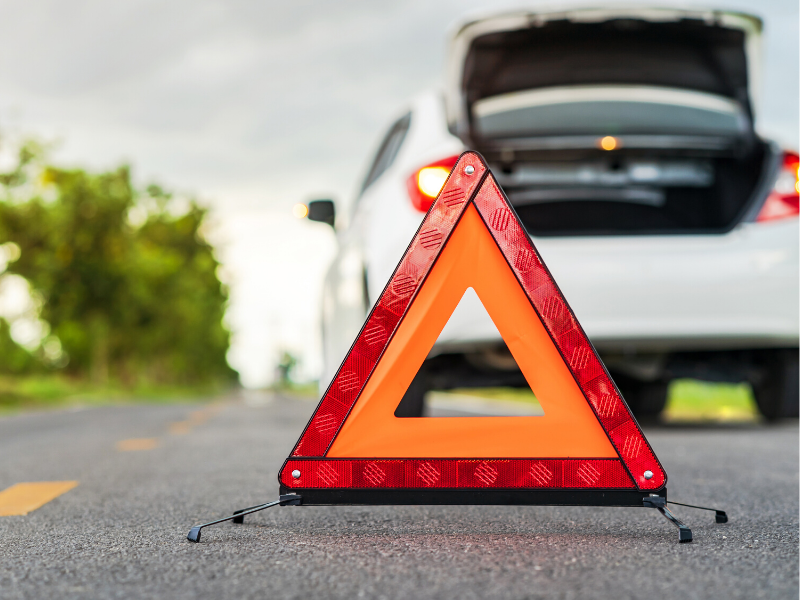Because accidents can happen at any time – and on any day – you should be able to call on them 24/7, 365 days a year. Speak to accident management supplier to find our how they can manage and support ‘out of hours’ incidents.
5th November 2020
What to look for in a good accident management service

Whether you’re managing a fleet with a few vehicles or a few thousand, accidents are, alas, part of the job. According to IAM, nearly 90% of fleets experience at least one a year.
Just one unfortunate second on the road can mean shock and even injury for your driver. But also, weeks of extra work and responsibility for fleet managers – even for minor accidents.
Managing accidents internally hogs time and resources. Doing it efficiently requires experience and expertise that not all fleet managers can command.
The longer the process takes the more the costs add up. Vehicle downtime costs alone can be as much as £800 per day, on top of any repair outlays and increased premiums.
Then there is the general degradation of your brand caused by using vehicles with damaged bodywork.
Given all these issues, it’s not surprising that many businesses choose to outsource these headaches to an accident management service. They will smoothly handle the entire process from first notification of the incident by the driver, through the repair process to finally re-uniting the vehicle with the driver.
Their checklist of responsibilities includes:
- collecting information and details of the accident
- recovering the vehicle
- promptly providing a replacement vehicle
- assessing the damage and liability
- organising the repair
- dealing with the insurers
- legal services and uninsured loss recovery
However, this is not all you should expect from a good accident management provider. Here are some pointers on what else you should look for.
The immediate priority of the operators should be the safety and wellbeing of the driver. Even minor accidents can produce shock and confusion. So the trained operator will check whether the driver or anyone else are injured, that they are safe, that they have onward travel, and that they know what they need to do following an accident. They should also offer emotional support.
Road incidents are an expensive outing for businesses, costing thousands in repairs, insurance premiums and vehicle downtime.
Good accident management companies can help to minimise the expense by capping repair costs. Their specialist knowledge and leverage with repair shops means that they can extract the best possible pricing on labour, parts, and paint.
Likewise, their clout and expert supervision means that repair shops are more likely to prioritise work for that valued client, reducing the downtime, returning vehicles to manufacturer standards.
To that end you should expect your accident-management provider to employ IMI Accredited repairs specialists who will scrutinise quotes to ensure that the repairs are appropriate, and that pricing is reasonable.
Improved repair technology, including Small Medium Area Repair Technique (SMART), means that minor damage, including scratches and scuffs, can often be now fixed at the roadside by mobile teams, or within 24 hours of the incident.
This saves time and money since a bodyshop may take days to complete a paint repair – and charge more.
Avoiding future increases in insurance premiums is a less obvious but important aspect of the benefits of outsourcing accident management.
By capturing images third party details at the scene the accident management company can not only better assess liability, it can also reduce the insurance claim in at-fault cases. By providing a replacement vehicle for the third party and organising the repair of the vehicle themselves they stay in control of the costs.
This also avoids the possibility that the third party will take on a credit hire and repair company, who then make inflated (but legal) insurance claims.
Managing the fallout of accidents as efficiently as possible and minimising the impact on your business is essential – but not sufficient. Clearly, reducing accidents themselves, their frequency and severity is the best solution for fleets and of course for your drivers.
According to an IAM survey, nearly half of fleet managers reported that some incidents in the last 12 months were caused by repeat offenders.
A good accident management provider can offer trend analysis of how and why accidents in your fleet occur, benchmarking your data against that for similar fleets. They will also enable you to assess whether any of your drivers are particularly at risk and would benefit from driver training.
At KINTO all our teams are housed under one roof, and accident management have a close dialogue with our downtime, technical, rental and account management, meaning KINTO accident management is able to draw on a wealth of experience and information.

Speak with one of our fleet experts today to learn more about how KINTO can help you manage your fleet more effectively to minimise the risks to your business.